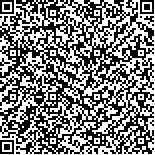| 本文已被:浏览 2747次 下载 1835次 |

码上扫一扫! |
|
|
| 三种常见经济虾蟹类眼柄微结构分析 |
|
蒋瑞1, 刘必林1, 刘华雪2, 冯春雷3, 张健1, 倪震宇1, 吴旭干4, 张虎5, 舒畅1, 鲁玉渭1
|
|
1.上海海洋大学海洋科学学院 上海 201306;2.农业部外海渔业开发重点实验室 广州 510300;3.农业部东海与远洋渔业资源开发利用重点实验室 上海 200090;4.上海海洋大学水产与生命科学技术学院 上海 201306;5.江苏省海洋水产研究所 南通 226007
|
|
| 摘要: |
| 本研究分别检测了三疣梭子蟹(Portunus trituberculatus)、中华绒螯蟹(Eriocheir sinensis)和中国对虾(Penaeus orientalis)三种虾蟹类的眼柄微结构特征,根据眼柄微结构,三种虾蟹类眼柄都分为4层:表层、色素层、钙化层和膜层。表层质地均匀,色素层含有色素,钙化层内有明显的生长纹(宽带和细纹),膜层透明度最高。但是三者眼柄微结构也有差异,中国对虾眼柄色素层较薄,膜层较厚,中华绒螯蟹钙化层含有色素颗粒。研究发现,中华绒螯蟹眼柄生长纹平均间距最大。钙化层的宽带是否与年龄或脱壳次数有关,细纹是否与日龄有关需要进一步实验验证,通过眼柄微结构特征的分析,可为虾蟹类的年龄鉴定及其生长研究提供新的方法。 |
| 关键词: 三疣梭子蟹 中华绒螯蟹 中国对虾 眼柄 生长纹 |
| DOI:10.11693/hyhz20170100014 |
| 分类号:Q954;S968.2 |
| 基金项目:国家自然科学基金项目,41306127号;农业部外海渔业开发重点实验室开放基金,LOF2017-04号;农业部东海与远洋渔业资源开发利用重点实验室开放基金,2016.1—2017.12;财政资金项目,计[2014]11号;农业公益行业专项,201303047号。 |
|
| MICROSTRUCTURES OF EYESTALKS OF THREE COMMON COMMERCIAL SHRIMP AND CRAB SPECIES IN CHINA |
|
JIANG Rui1, LIU Bi-Lin1, LIU Hua-Xue2, FENG Chun-Lei3, ZHANG Jian1, NI Zhen-Yu1, WU Xu-Gan4, ZHANG Hu5, SHU Chang1, LU Yu-Wei1
|
|
1.College of Marine Sciences, Shanghai Ocean University, Shanghai 201306, China;2.The Key Laboratory of Open-Sea Fishery Development, Ministry of Agriculture, Guangzhou 510300, China;3.The Key Laboratory of East China Sea & Oceanic Fishery Resources Exploitation and Utilization, Ministry of Agriculture, Shanghai 200090, China;4.Science and Technology College of Fishery and Life, Shanghai Ocean University, Shanghai 201306, China;5.Marine Fisheries Research Institute of Jiangsu, Nantong 226007, China
|
| Abstract: |
| Eyestalk microstructure of three common commercial crustacean species in China, i.e., Portunus trituberculatus, Eriocheir sinensis, and Penaeus orientalis were examined and analyzed. The eyestalks of all the three species are made of four layers:epicuticle, exocuticle, endocuticle, and membranous layers. The texture of epicuticle is uniform; the exocuticle contains pigment, and the endocuticle has obvious growth bands (bands and increments). The membranous layer is the most transparent among the four layers. In addition, the microstructure of the three eyestalks is different. For examples, the exocuticle of P. orientalis is thinner, the membranous layer is thick; the endocuticle of E. sinensis contains pigment particles; and the average growth increment of E. sinensis was the largest. Future studies are called on whether the growth bands of the endocuticle are related to the age or the shelling times. Information of the eyestalks microstructural features may provide us a tool for age and growth of shrimp and crab, or other crustaceans. |
| Key words: Portunus trituberculatus Eriocheir sinensis Penaeus orientalis eyestalk growth bands |
